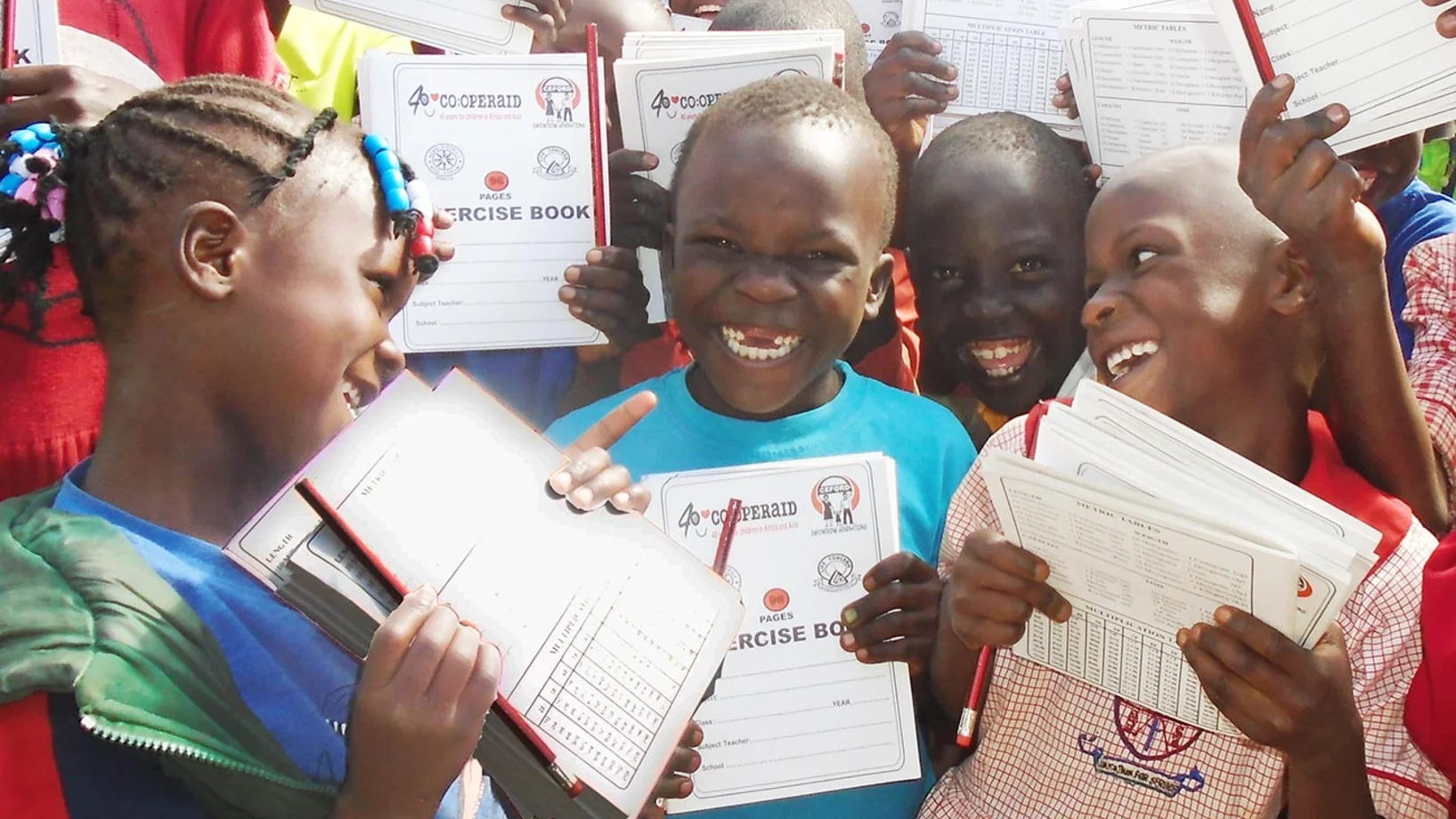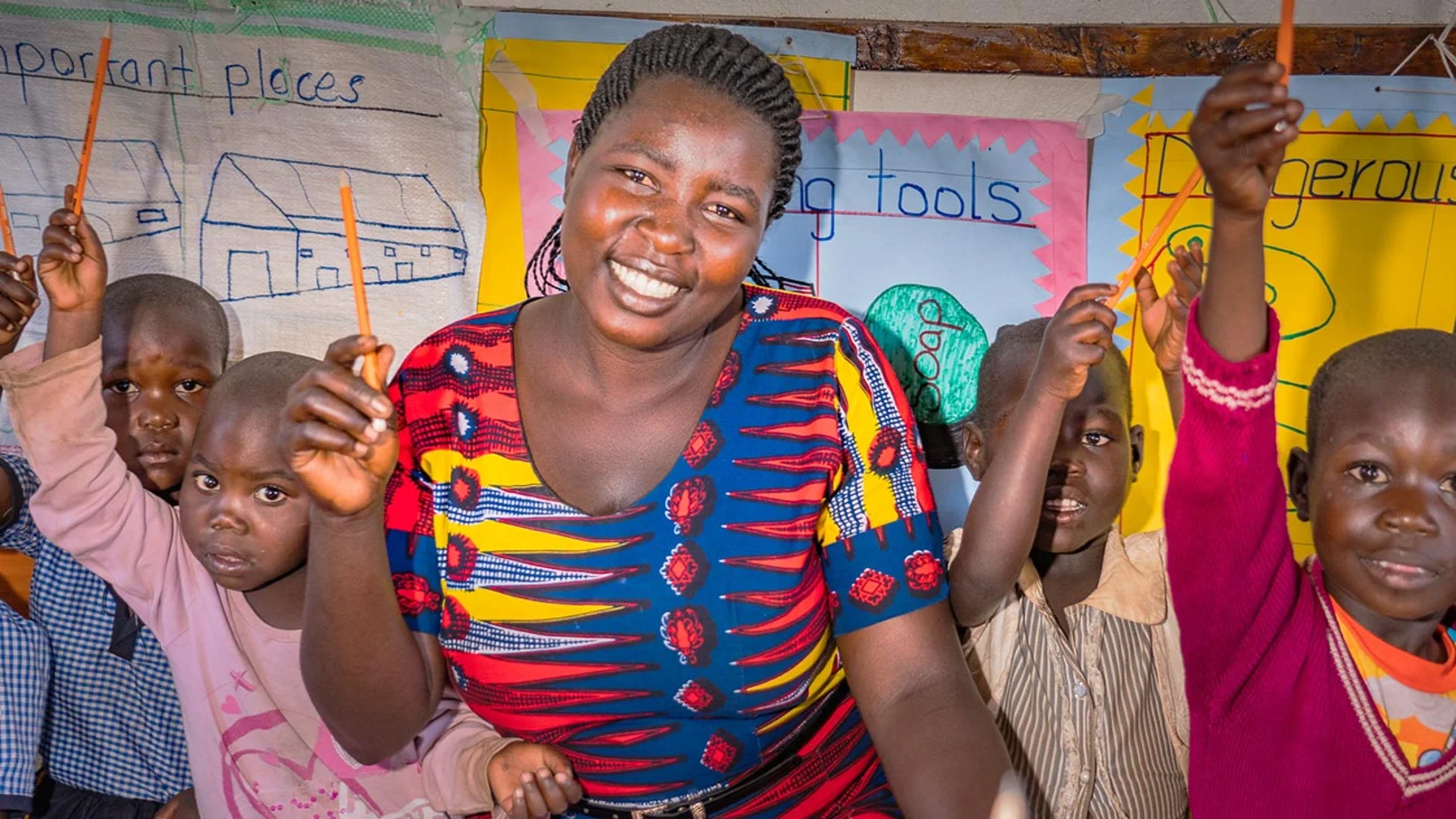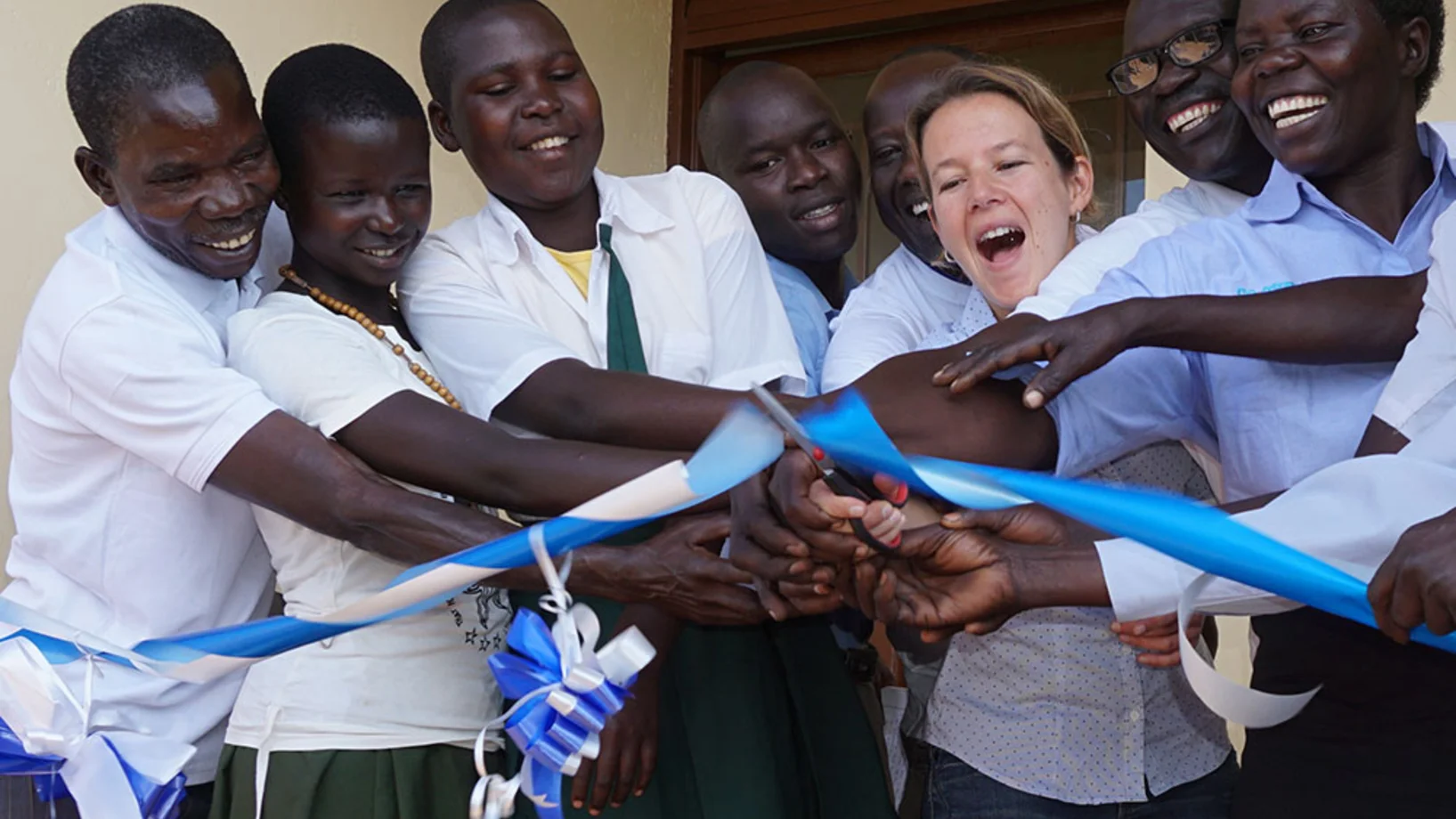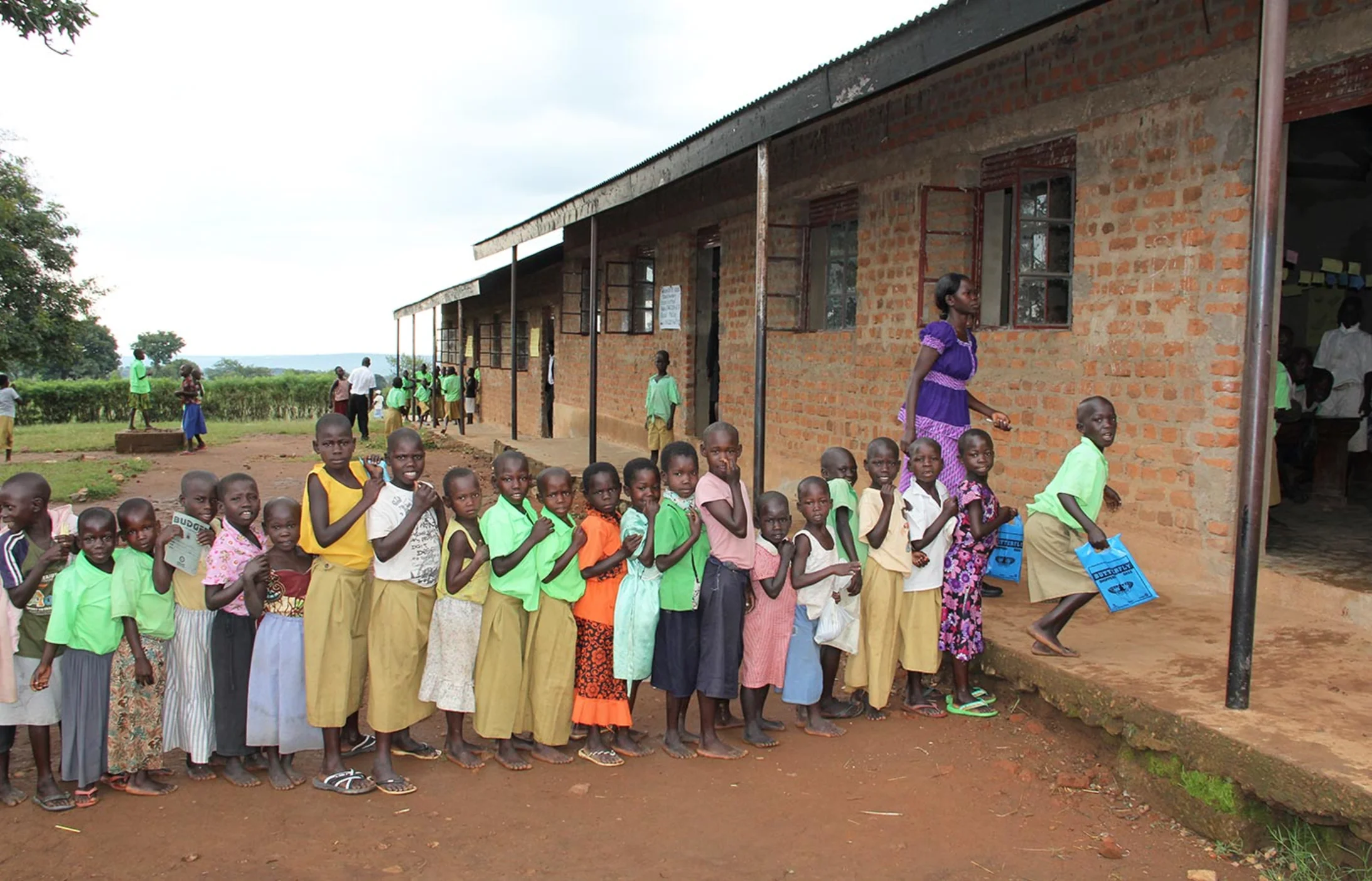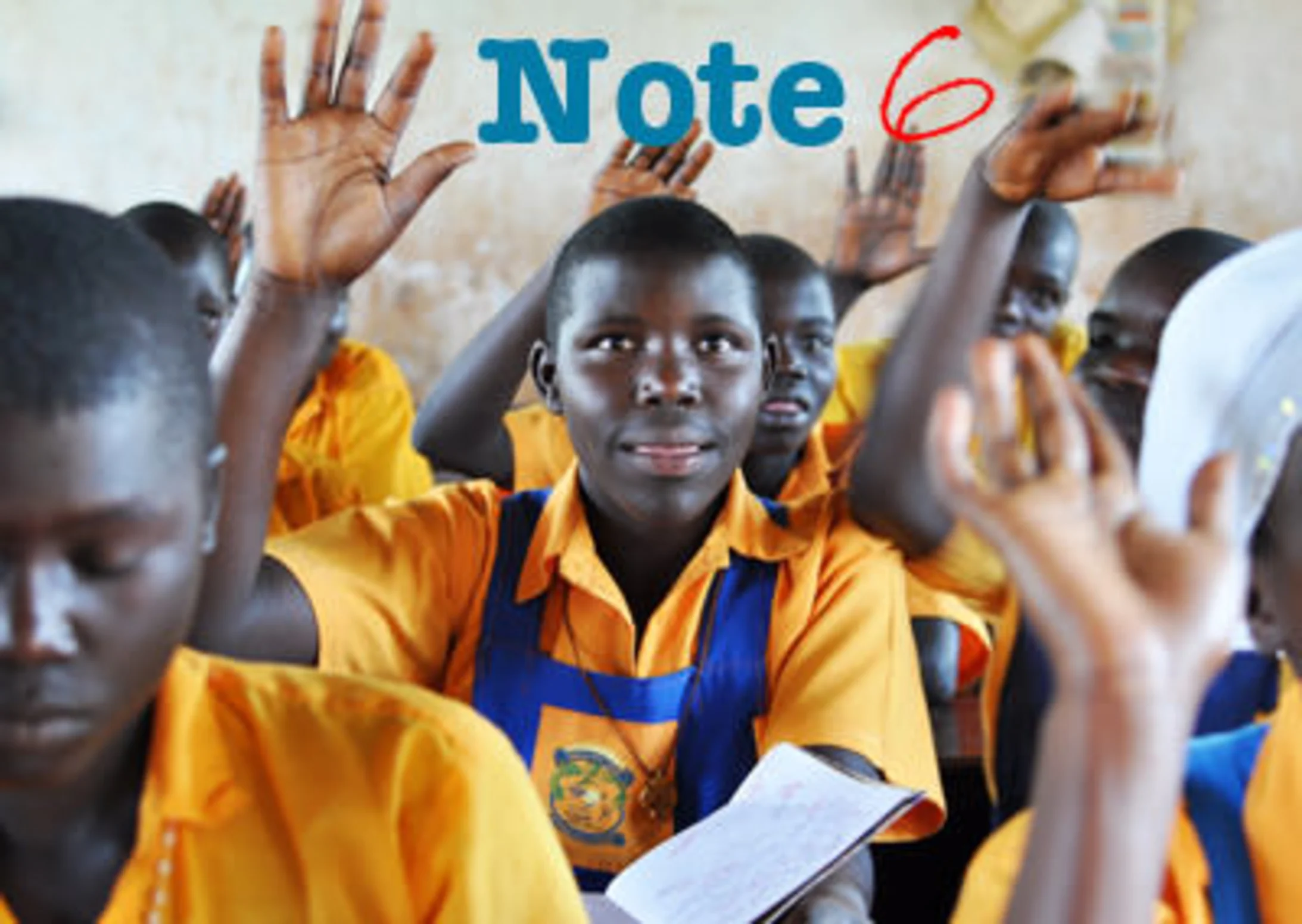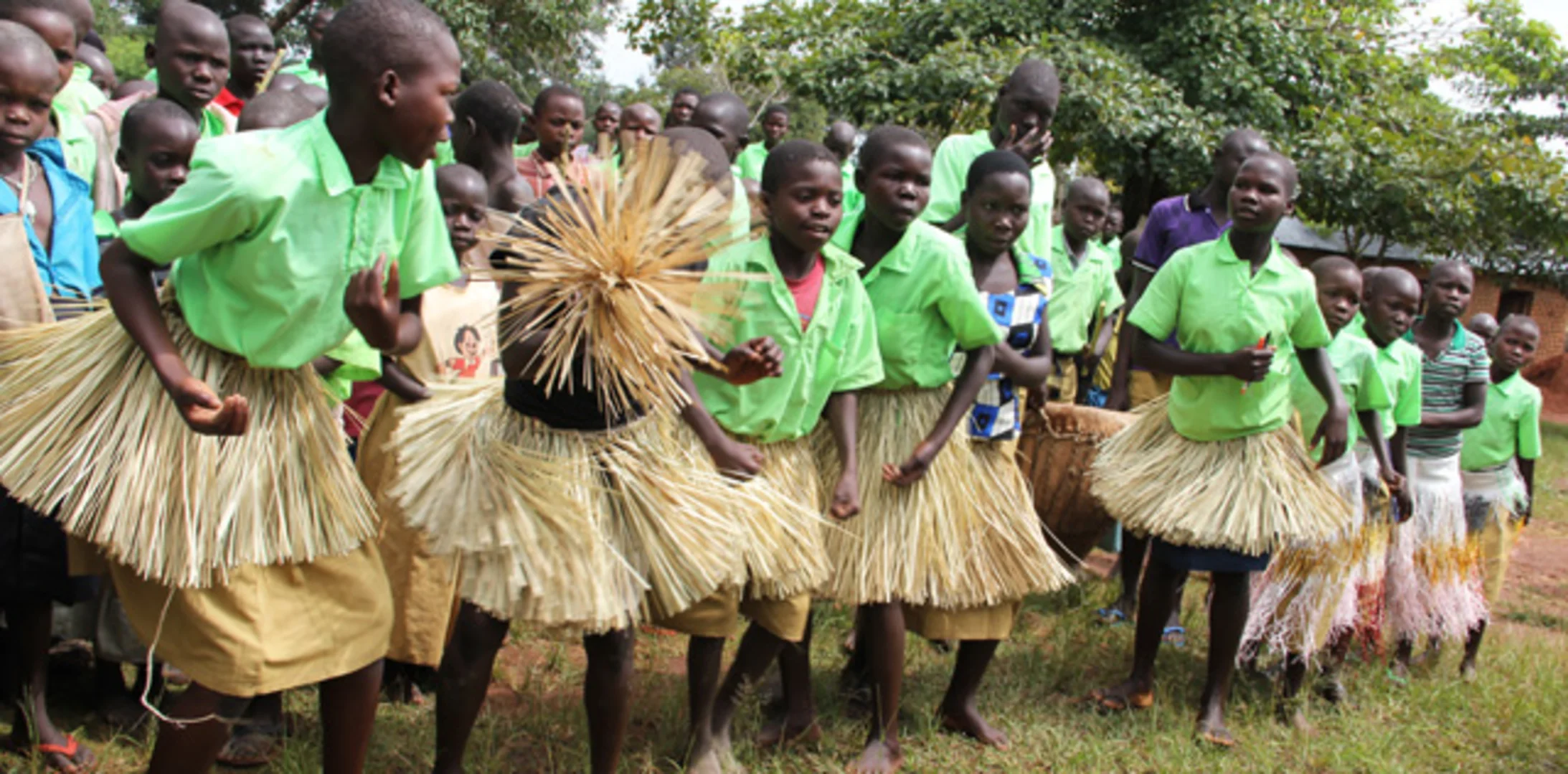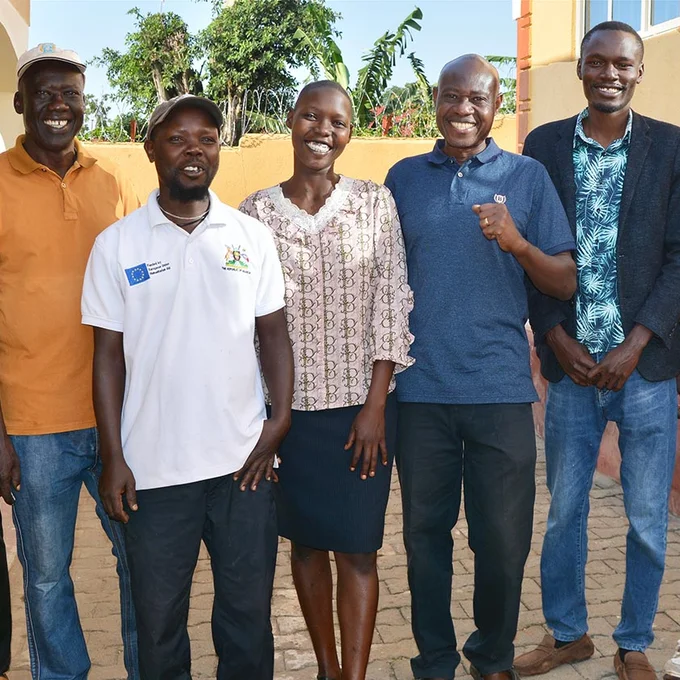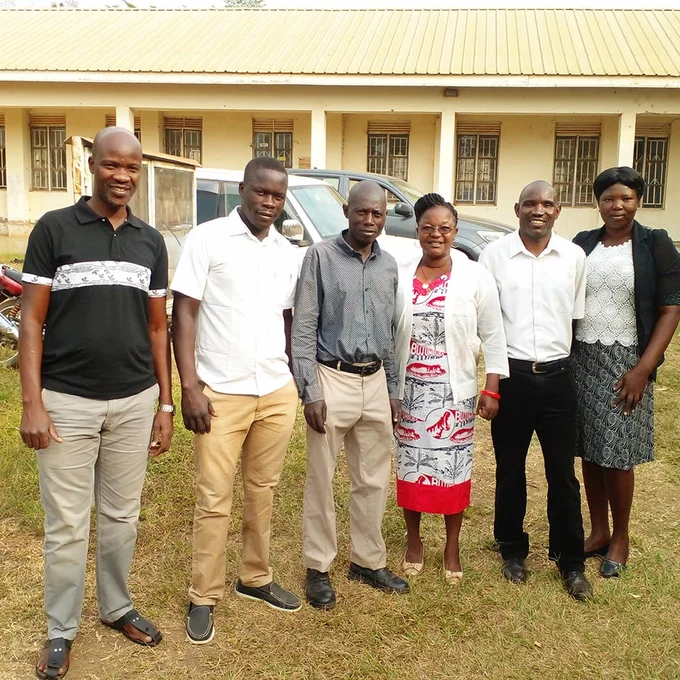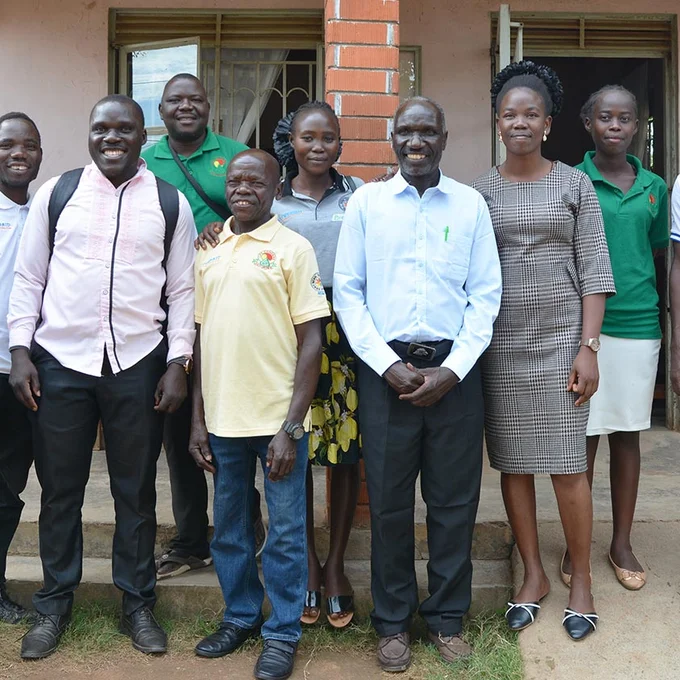About the aid project for better schools in Uganda
The "Alochi Ku Somu" project supports children and young people from farming families in the rural district of Zombo in northwestern Uganda. The public schools in the region have many deficiencies, both in terms of infrastructure and teaching quality. As a result, only an estimated 20 percent of children complete elementary school. Girls in particular drop out of their school careers early. In cooperation with three local aid organizations, CO-OPERAID is supporting the young generation in Zombo. We facilitate the improvement of infrastructure and school management and provide further training for teachers. Important goals of our project are a more positive school experience and a better graduation rate at the total of 21 partner schools. The children and young people come from families of which 76% are affected by multidimensional poverty. With its project CO-OPERAID supports such poor households and "OVC's" (Orphans and vulnerable children).
Education for children in Uganda: How you can help
Aims of the education project in Uganda
Improved learning environment at schools
The project cooperates with 21 partner schools. Through our support, they can further develop their school infrastructure. The investments are made with customized services, which are implemented in cooperation with the school management and the school committee, in which the population of the school community is represented. The partner schools are determined through an annual transparent competitive process. At least 4,000 school children benefit from these services each year.
Improved teaching, learning and school management
One focus of the project are the teacher teams. They receive too little support in rural schools. The project makes further training possible, initiates internal learning groups and organizes learning visits to model schools. The exchange between teachers and parents is also improved. In order to create role models, 10 teachers are awarded the title "Teacher of the Year" each year. In addition, further training is offered for school directors and school committees for improved school management.
Improved access to education and raising awareness
Campaigns to start school and the distribution of school materials for the poorest children facilitate access to school. On Youth Day, the youth of Zombo are given a voice. School children, school clubs and young people express their needs and wishes. Gender-based violence is also addressed.
Responsible native Partner-NGOs in Uganda
A voice from the education project in Uganda
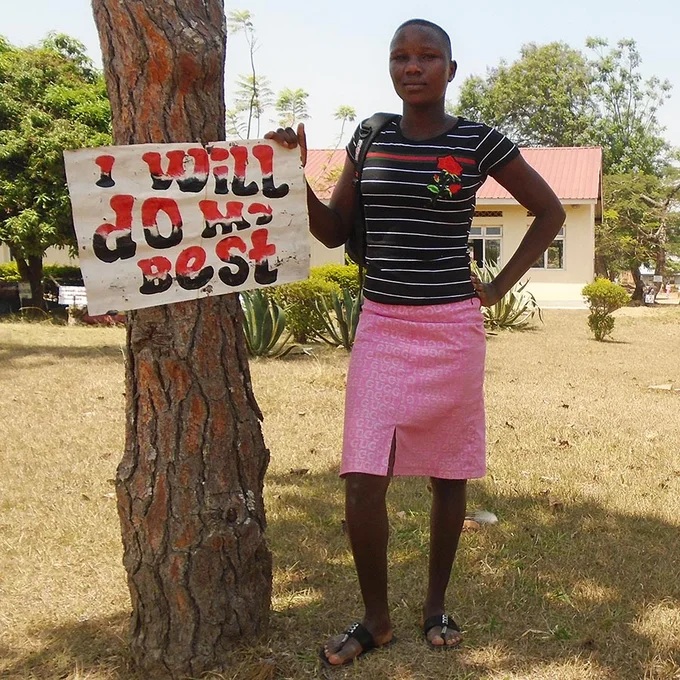
"I am very happy that CO-OPERAID has supported my school education. In the final exam, I achieved the best grades at my school for 10 years. Therefore, I received a scholarship from the education authority and can now continue my studies in the capital. My schoolmates have already gotten married. I want to study and become a doctor."
Project region: Zombo district
FAQs
The project starts in January 2025 and will be completed in December 2027. Its first phase was implemented from January 2022 to December 2024. CO-OPERAID has been committed to improving education in the Zombo district since 2011.
Zombo is a backward district of Uganda. The low level of education (literacy rate 54%; women 29%) is a major obstacle to development. Historically, Zombo has been set back by civil wars (Amin-Obote succession war; war with the Lord's Resistance Army) and waves of refugees from Congo. Most Zombo residents are farmers who practice subsistence farming (self-sufficiency) with manual tools. Physical labor is essential for survival. Households with old or sick breadwinners, single-parent households or households with children (orphans and vulnerable children) can only secure food with great difficulty.
Three established aid organizations based in the project area implement the project. They employ exclusively Ugandan staff, also in positions of responsibility. The partners are Community Empowerment for Rural Development (CEFORD), Nebbi District NGO Forum (NDNF), and Life Concern (LICO). These partners reach a majority of the civilian population. For their part, they work with local authorities, school teams and boards, and grassroots organizations to implement project services.
The majority of the partner schools are state schools. They will be able to make progress through the project that will benefit many generations of school children. Empowering children, youth, parents, teachers, and community members produces sustainable results. In addition, the development of role models strengthens those actors who pass on knowledge and skills and promises a multiplication effect.

